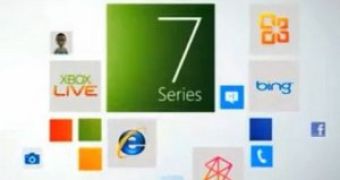Windows Phone 7, the latest mobile operating system Redmond-based software giant Microsoft unveiled officially this year, is set to become available on the market sometime in the fourth quarter of the ongoing year, yet many are certainly interested in learning more on it before it lands. While a great deal of info on it already made it into the wild, it seems that a lot of details are still unknown to the world, and some of them have been brought to light recently.
Brandon Watson, Microsoft's director of Developer Experience, provided some answers on Windows Phone 7 in an online question and answer “backstage” event on the official Windows Phone 7 site, offering some more details on the OS and on what developing applications for it is all about. A 60-minute talk tool place, and those interested in taking a look at the entire video should head over to windowsphone7 for it (registration required).
As for what has been discussed there, the guys over at WMExperts came up with a summary, highlighting some of the most important details unveiled, including: - Final version of developer tools will be available “months” before final release of hardware. Plenty of time for developers to feel comfortable. - New builds of WP7 developer tools every month or two - Developers will have access to Windows Phone 7 devices - Hundreds of thousands of downloads of WP7 dev tools already - Competent Silverlight developers should be able to build WP7 apps in just a few hours - There are 2 million C# developers in the US, all potential WP7 developers - Business experience was not "main concern" with this initial release; consumer UX was.
But this is not all. According to Watson, OEM applications won't enjoy multi-tasking either, while 3rd party apps won't have access to the use of email attachments. Windows Phone 7 does not feature support for in-browser Silverlight for the time being, while socket support for WP7 is expected to arrive at a later date, after the initial launch. Developers can use the programming tools they want, yet the common language runtime is still required. In case one app is rejected, developers will receive a list of things that need to be fixed, it seems. One thing that wasn't unveiled is the markets where Windows Phone 7 devices are expected to be launched.

 14 DAY TRIAL //
14 DAY TRIAL //